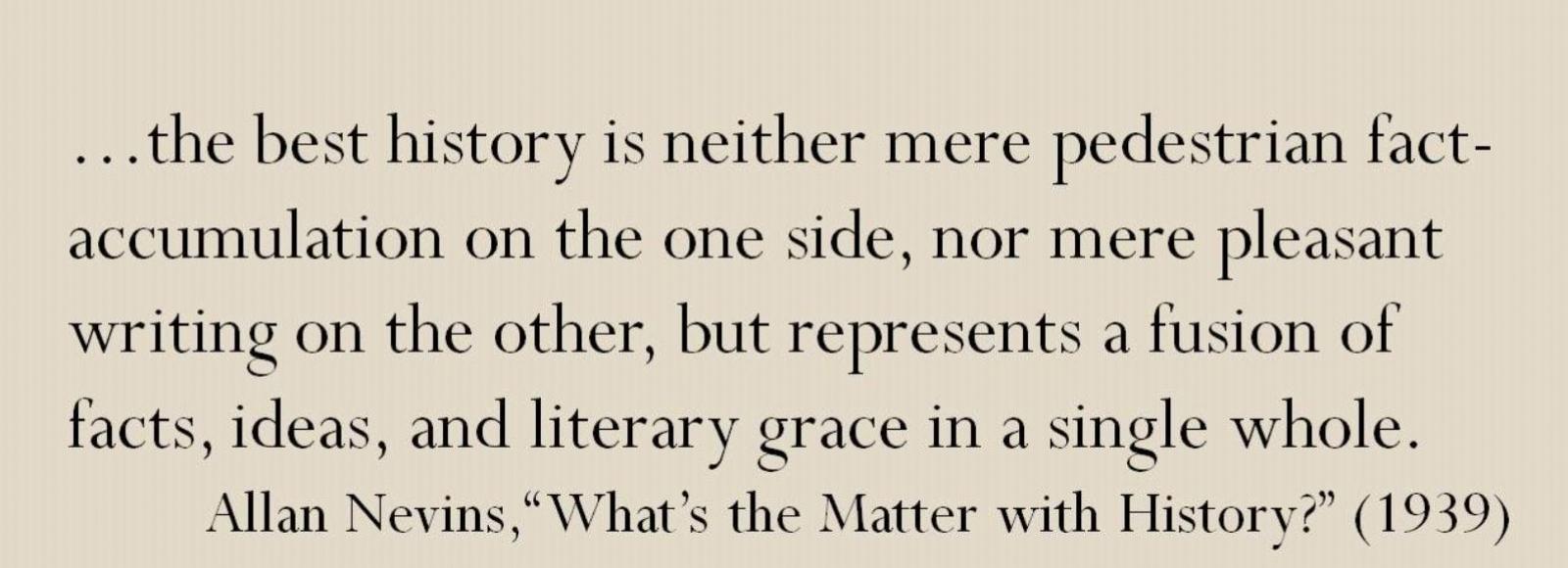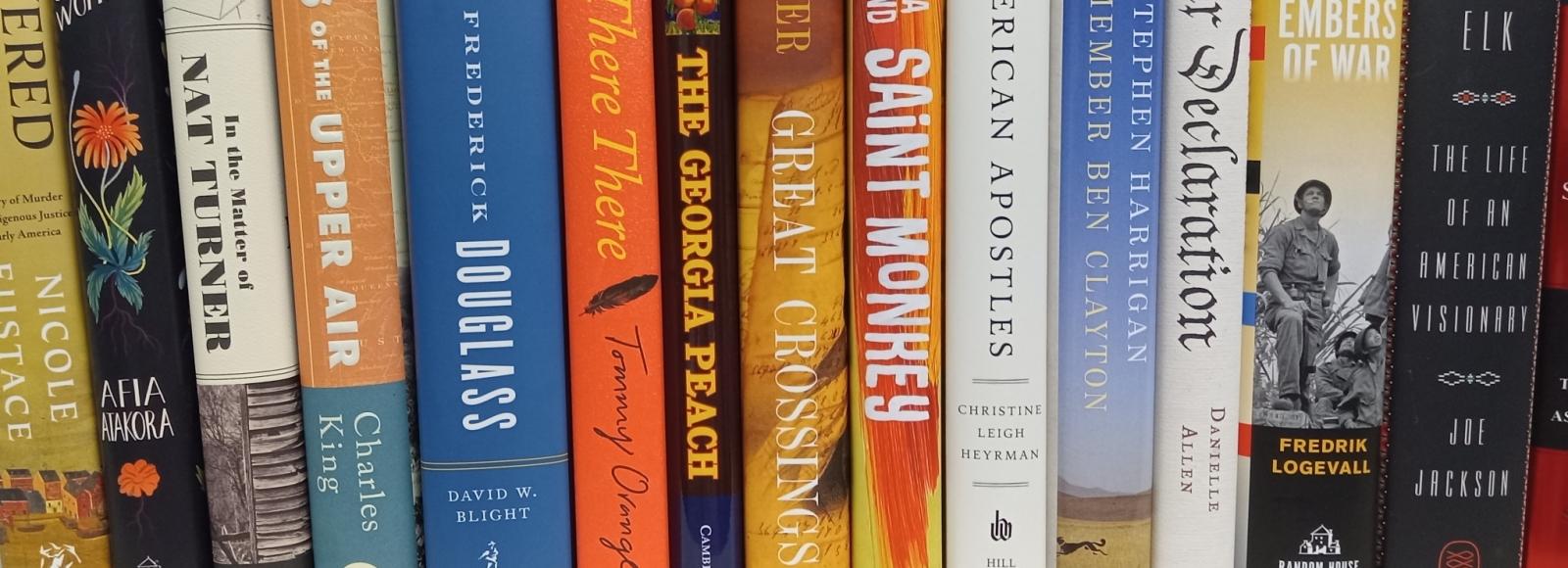To Encourage Literary Distinction in the Writing of History and Biography
THE 2024 PARKMAN PRIZE AND NEVINS DISSERTATION COMPETITIONS ARE NOW CLOSED. Watch this site in May for news of the winners.
The Society of American Historians (SAH) was founded in 1939 by the journalist and Columbia University historian Allan Nevins and several fellow scholars to promote literary distinction in the writing of history and biography. Under a charter of incorporation issued by the State of New York, the society has continued to promote its original objective in a variety of ways: through the awarding of prizes, the promotion of historical studies and interests, and cooperation with publishers and other institutions engaged in furthering these aims.
The Society's membership includes more than 450 academic scholars, public historians, and professional writers working on topics in American history. Members are elected based on achievement in the vivid and compelling presentation of history and biography in a variety of forms, including books, essays, film, drama, museum exhibitions, and other emerging forms of public communication. The Society recognizes excellence in historical work marked, among other qualities, by clarity, empathy, narrative power, accuracy, and explanatory force.


